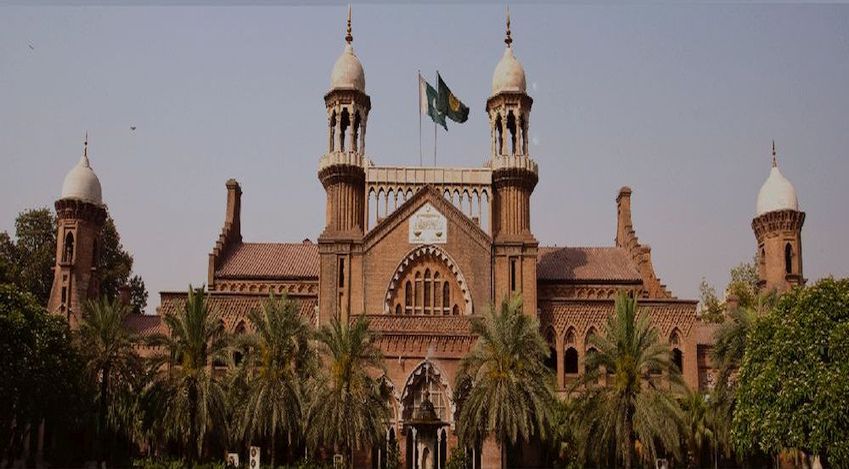Termination of a Contract doesn't nullify the Arbitration Clause; it can still be invoked for Dispute Resolution --- Lahore High Court, Lahore
Islamabad 27-05-2024: In the judgment overseeing [F.A.O. No.90 of 2023] and [Civil Revision No.670 of 2023] stemmed from a single order dated July 19, 2023, the Honourable Lahore High Court Rawalpindi Bench Rawalpindi presided over by Mr. Justice Mirza Viqas Rauf observed that impugned order pertains to a petition under Section 20 of the Arbitration Act, 1940, and an application under Order XXXIX Rules 1 & 2 of the Code of Civil Procedure, both filed by the respondent. The impugned order has allowed a petition under the Arbitration Act, 1940, and accepted an application under the Code of Civil Procedure (C.P.C.) from respondent No.1. The case involves a Charitable Organization; aiming to assist NCA employees, entering an agreement with a business entity for land purchase. The appellant, a Charitable Organization, entered an agreement with the respondent, a business concern, to purchase land for the welfare of NCA employees. The respondent defaulted on payment due to a force majeure event (COVID-19). The appellant terminated the contract, leading the respondent to seek Arbitration. The agreement outlined a payment plan in two installments for the land purchase, with provisions for proportionate land transfer upon payment. The agreement included an arbitration clause, specifying arbitration under the Arbitration Act, 1940. This Act provides for Arbitration Agreement and interventions by courts. The Section 20 allows parties to apply to a court to file the Arbitration Agreement.
The appellant, owning the land in question, entered an agreement to sell to the respondent for Rs. 550 million, with Rs. 50 million paid as earnest money. The remaining Rs. 500 million was to be paid in two installments, with the first installments of Rs. 250 million due after four months. The vendor was to transfer land proportionately upon receiving payment, as outlined in the agreement. The second installments of Rs. 250 million was due after eighteen months, with earnest money to be adjusted. Provisions allowed the vendee to pay installments early, with corresponding adjustments in land transfer by the vendor.
The issue at hand centers on Section 20 of the Arbitration Act, 1940, emphasizing the importance of focusing solely on the legal question between the parties. The clause 24 of the agreement outlines the arbitration process, including the selection of arbitrators and the arbitration location and language.
The Arbitration Act, 1940, consolidated laws related to arbitration, with Section 2(a) defining an "Arbitration Agreement". Chapter III of the Act addresses arbitration without the involvement of a court when no suit is pending. The section 20 of the Act allows parties to apply to a court to file the arbitration agreement before the institution of a suit regarding the subject matter. The respondent invoked Section 20, leading to resistance from the appellant on grounds of default payment and force majeure. Subsection (4) of Section 20 requires a showing of sufficient cause to persuade the court against filing the agreement, highlighting the importance of extraordinary circumstances.
It was thus obligatory for the appellant/petitioner to demonstrate some sufficient cause, so as to persuade the court not to proceed in terms of Section 20 of the “Act, 1940”. In other words, it can easily be inferred from the plane reading of sub-section (4) that there should be some extraordinary circumstances in which the court desist from passing an order that the agreement to be filed and matter should be referred to the arbitrator(s). Clause 24 of the agreement stipulates that any difference or dispute between the parties on any matter arises thereunder shall be referred to the arbitration which is clearly in the vast term.
The arbitration clause within an agreement addresses default in payment and justifiable reasons, exclusively determined by appointed arbitrators. Courts cannot preempt arbitrators' decisions regarding disputes governed by the Arbitration Act of 1940. The Act's "sufficient cause" resembles the concept of disclosing a cause of action under Order VII of the Civil Procedure Code. Section 20 proceedings are akin to suits but distinct; they necessitate a show cause notice before filing agreements. Precedents like “Lahore Stock Exchange Limited v. Fredrick J. Whyte Group” guide these proceedings. Industrial Fabrication Company's judgment isn't applicable due to differing facts. Force majeure or agreement termination issues should be addressed before arbitrators, not as a defense against Section 20 applications. Termination of a contract doesn't nullify the arbitration clause; it can still be invoked for dispute resolution. Granting temporary injunctions should consider the existence of a prima facie case, balance of convenience, and irreparable loss, as seen in legal precedents. Finally the Court dismissed the appeal as well as revision.
Powered by Froala Editor








